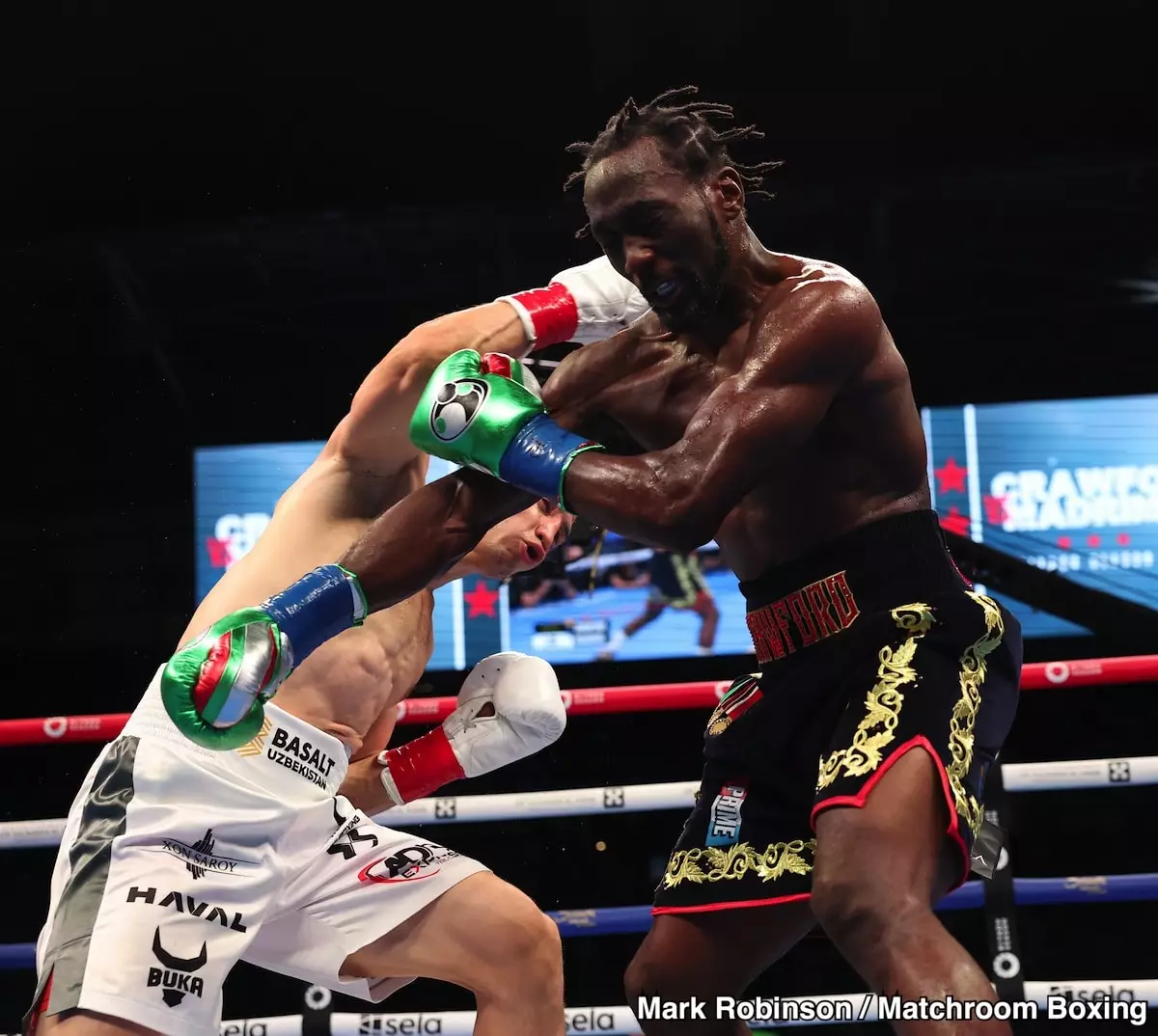The world of boxing is replete with discussions that intersect the realms of sport, business, and ethics. An intriguing case is the upcoming match between Canelo Alvarez and Terence Crawford, scheduled for September 13th. Promoter Sampson Lewkowicz’s apprehensions regarding this bout highlight complex concerns ranging from health implications to the integrity of competitive sports. This article will dissect these concerns while evaluating the broader implications of such matchups in the boxing landscape.
Business vs. Sport: The Dichotomy of Modern Boxing
Sampson Lewkowicz has publicly expressed his disdain for the Canelo-Crawford fight, labeling it more of a business venture than a true sporting contest. This sentiment mirrors a growing apprehension among boxing purists who feel that many contemporary fights are driven by economic considerations rather than genuine competition.
Crawford, a former undisputed champion at 140 pounds, is now moving up in weight instead of confronting formidable contenders at super middleweight. Lewkowicz argues that this approach undermines the sport’s integrity, suggesting that Crawford’s decision lacks the competitive spirit that boxing so desperately needs. Instead of battling other top fighters in the division, Crawford’s foray into this high-stakes match appears more motivated by financial gain than proving oneself in a legitimate contest.
Lewkowicz’s concerns also extend to the health and safety of the fighters involved. He is particularly apprehensive about the physical disadvantage Crawford may face against Alvarez, a considerably larger opponent. The promoter’s vivid recollection of Amir Khan’s devastating knockout loss to Canelo serves as a cautionary tale. Khan, who was far lighter than Alvarez, suffered a brutal defeat, leaving lasting scars on everyone who watched it, including Lewkowicz himself. In his eyes, it is not merely a question of records and titles; it’s about the very real and dangerous implications a mismatch can have on a fighter’s well-being.
Crawford’s upcoming bout represents a significant risk, not just of losing but of sustaining potentially career-ending injuries. As boxing becomes increasingly commercialized, the health of fighters often takes a back seat to financial incentives. This raises ethical questions: Should promoters be held accountable for matchmaking that places fighters in harm’s way? Given the ever-existing balance between making money and prioritizing safety, these concerns shed light on the moral responsibilities of those in the boxing business.
Why Fight? Understanding Canelo’s Choices
From Lewkowicz’s perspective, Canelo Alvarez is a shrewd businessman who knows how to maximize profitability. Canelo has frequently opted for matchups that assure him substantial earnings, which often means selecting opponents carefully. While this approach is understandable from a business standpoint, it has ignited criticism about the nature of competitive integrity.
Lewkowicz’s desire to see Alvarez face off against David Benavidez underscores the belief that matchups should be about competitive fairness and legacy rather than mere financial opportunities. The narrative here questions whether fighters, especially champions, should select bouts based on their ability to generate income instead of challenging themselves against the best available talent. Boxing enthusiasts often feel deprived of high-level fights that would genuinely test the mettle of its stars.
The impending bout between Canelo Alvarez and Terence Crawford not only raises critical questions about fighter safety and competitive integrity but also reflects larger trends within the sport. With promoters increasingly guided by profit margins rather than a commitment to fair competition, boxing may risk its credibility. Fans crave high-stakes, meaningful contests—fights that have implications beyond just monetary gains.
However, as long as financial incentives dominate the decision-making process in matchmaking, the shadows of apprehension and fear for a fighter’s health will loom large. The boxing community must engage in discourse on these issues to promote a sport characterized by fairness, skill, and respect for the athletes who dedicate their lives to it. Thus, the October fight becomes emblematic of a larger conversation on how to balance the business of boxing with the sanctity of sport.

